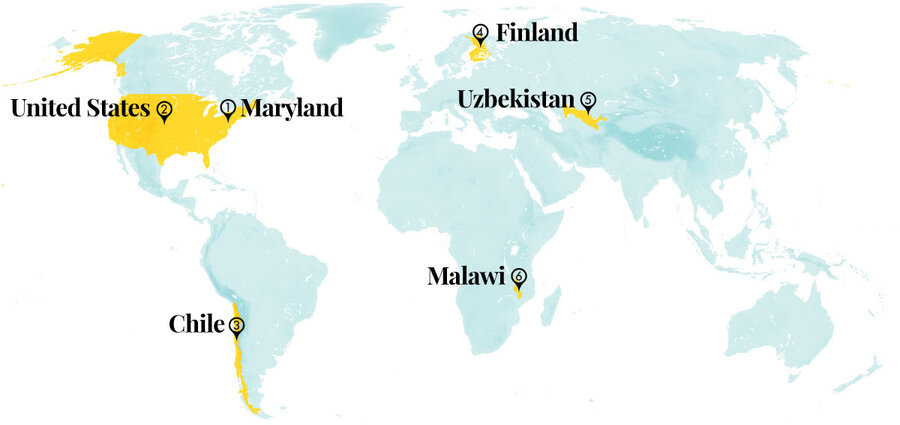When those with deeply held and long-deferred political beliefs finally get momentum, how can they keep their exuberance from taking on a hard edge? A report from the campaign trail.
Monitor Daily Podcast
- Follow us:
 Clayton Collins
Clayton Collins
Today we look at behavior and accountability among one campaign’s backers in the presidential race and among arts-and-entertainment figures in the U.S. and in France, respect for nonhuman species, and a scan of global progress. First, a look at some quiet counternarratives.
New week, new worries? Try changing your focus.
Political potshots ring out in the United States. But hold for a moment this better-angels comment made by Elizabeth Warren in Nevada: “There are a lot of good people in this government who are not political,” said the Massachusetts senator, “a lot of good people who want to get out there and do what is right.”
That can mean perspective shifts.
Utah, for example, is about as red as states come. But it just hatched , with an eye to both local air quality (tourism) and the global climate. “It cuts across political lines,” said the state’s speaker. “[Clean air] is not a partisan issue in our state.”
A appears to color Europe. But a stadium crowd in Münster, Germany, rose en masse of a Ghanaian player from another German team, chanting “Nazis out” as the fan was removed.
Humans seem to keep driving fellow Earth species to the brink. But a sense of shared habitat may be dawning. In northern India, farmers and shepherds have fostered a negotiated coexistence with leopards, chronicling the cats’ behavior and then modifying their own in order to limit violent encounters.
Bhanu Sridharan for the nature website Mongabay. I asked her why that story resonated. “By and large,” she answered in an email, “people across rural India tend to accept wild animals as part of the landscape.” (See our similar solutions story below.) Scientific studies of such relationships, she noted, often focus only on the conflicts.











